News
Cybercrime Act: Reps Direct NSA, CBN To Carryout Further Enlightenment on Levy
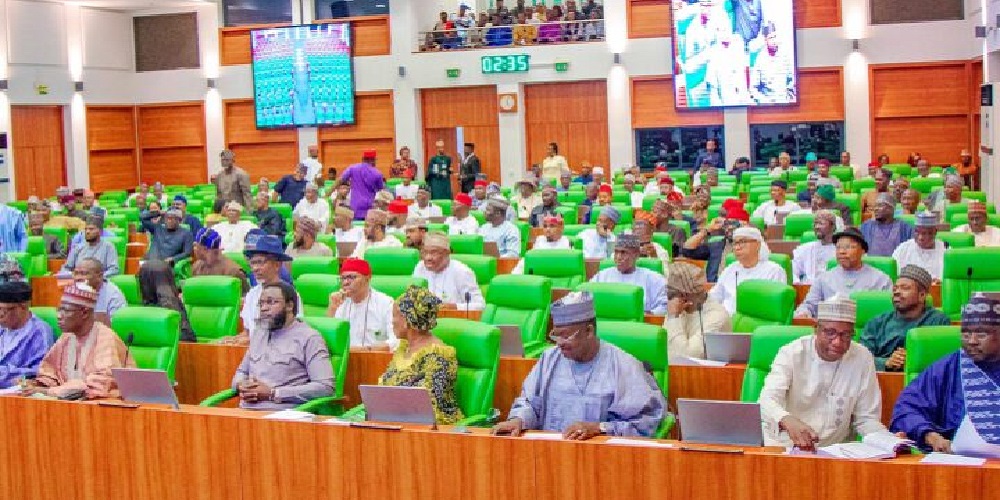
By Gloria Ikibah
The House of Representatives has moved a motion directing the Central Bank of Nigeria and Office of National Security Adviser to cause further enlightenment on the Cyber Crimes Act and implementation of the 0.5% (0.005) levy, correct the wrong perception on the implementation of the Cybercrimes Act been circulated in the social media.
This was sequel to a motion of urgent public importance by the House Minority Leader, Rep. Kingsley Chinda and seven (7) other lawmakers on the “Urgent Need To Correct The Wrong Perception Of The House Of Representatives Position On Implementation Of The Cybercrimes Act”, on Tuesday at plenary.
Debating the motion Rep. Chinda noted that on 9th May 2024, the House considered a joint motion on the implementation of the Cybercrimes (Prohibition and Prevention) Act, 2015 as amended in 2024 and resolved to direct the Central Bank of Nigeria (CBN) to withdraw the ambiguous circular of 6th May 2024 and in its place issue an unambiguous and unequivocal circular in line with the letters and spirit of the law and directed the House Committees on Banking Regulations and Ancillary Institutions to guide the CBN properly.
But the Minority Leader stated that the media space was awash with the wrong impression that the House of Representatives was against a Law passed by Her, which impression painted the House in bad light.
He said: “Cognizant that the world is a global village and with the internet-of-things, crime is moving from meat space (real or physical world) to cyber space without the physical limitations of boundaries.
“Further cognizant that cybercrime is more devastating and can cripple a nation easier that the conventional crime in the physical space.
“Aware the humongous cost expanded on security and the very likely limitations of funding cyber space security by government.
“Further aware that some establishments carry out their businesses within the cyber space and make profits therefrom.
“Also aware that the Cybercrimes Act imposes a levy of 0.05% (0.005) on some establishments enumerated in the second schedule to the Act, that occupy the cyberspace; do business therein and make profit therefrom”.
Rep. Chinda stated that the letter and spirit of the Law as crafted by the Parliament is not only commendable but in tune with contemporary trend and supportive of the global fight against Cyber Crime.
He further noted that the levy does not apply to ordinary Nigerians but only to the establishments listed in the second schedule to the Act, which includes; GSM Service providers and all telecommunication companies; Internet Service Providers; Banks and other Financial Institutions; Insurance Companies; and Nigerian Stock Exchange.
“Order 20, Rule 93 (2) (b) of the House Rules provides that ‘in the event of joint oversight on issues relating to cybersecurity, the Committee on National Security and Intelligence shall work with the Committee on Digital and Information Technology. In such cases, the Committee on National Security and Intelligence shall be the lead Committee”, he added.
Explaining further he said: “Our role is to make Law and once there is an attempt to abuse the law that we made, it is necessary that we take a clear decision and that is what I have called on us to do today. Now, if in cause of implementation, we find out that the implementers, that is, the executive arm, are abusing it, we come back to amend it. But we can not at this stage amend by way of motion.
All we are doing is to caution the executive arm. This side, the content of the law we made, in cause of execution, does not task Nigerians directly or indirectly. If we find out that there are indirect taxes, it is justified for us to come back here and amend the law and see how we can improve on what we have done. Therefore, all we are doing today is to continue to enlighten Nigerians because a lot of them are still not aware that this law does not apply to you, but those who are making profit from the cyber space”.
“If the people feel otherwise, it is our duty to came back and amend that portion if possible remove it”.
In his ruling the presiding officer who is the Deputy Speaker, Benjamin Kalu stated: “Bybthis it means that the House of Representatives is standing bybthe law it made on the Cyber Security. We are standing in the government that is interested in ensuring that we are protected on what we can see with our physical eyes and what happens within the Cyber Space.
“That have shown the support that citizens of the country should not be taxed”.
The House through a voice vote unanimously adopted the motion and mandated the House Committees on National Security and Intelligence, Digital and Information Technology, Justice, Digital Economy, and Electronic Banking to superintend over the implementation of the House resolution of 9th May 2024 on the Cybersecurity Levy, with the committee on National Security and Intelligence as the lead the committee.
News
Mbah mourns ,says Christian Chukwu was a ‘football icon’
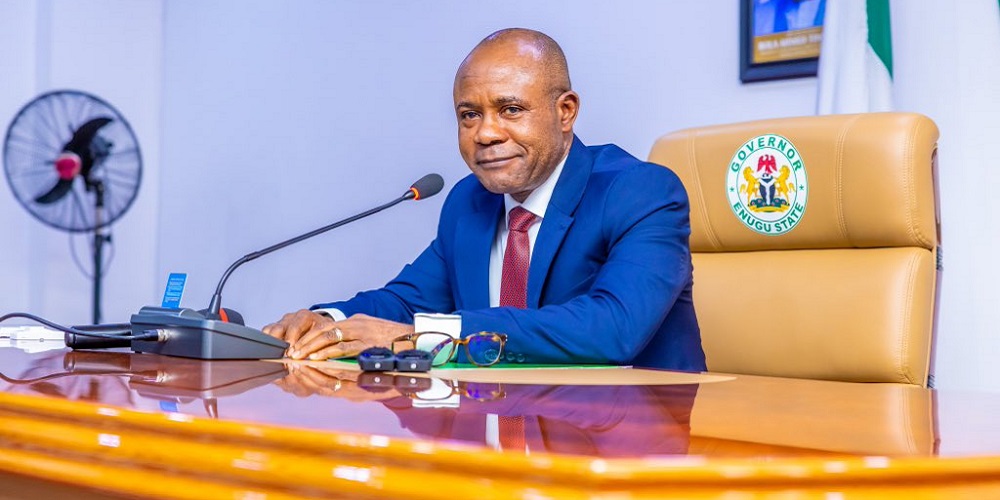
By Kayode Sanni-Arewa
Enugu Governor Peter Mbah has expressed deep grief over the passing away of former Super Eagles skipper and coach, Christian Chukwu, describing him as a football icon, titan, and phenomenon.
Reacting to the development on Saturday Mbah said: “I received with a deep sense of loss the passing away of Chairman Christian Chukwu. It is a personal loss to us as Ndi Enugu, his home state, and indeed to Nigeria as a nation and Africa as a continent.
“Christian Chukwu was a national icon, a football titan, field marshal, and phenomenon. His exploits as a footballer united the country across ethnic divides and creed.
He was patriotism personified, serving the nation and Africa unreservedly both as a player and coach of the highly successful Rangers International Football Club of Enugu and Super Eagles of Nigeria, which he captained to victory as Green Eagles at the 1980 Africa Cup of Nations, AFCON. He also coached the Harambee Stars, Kenya’s senior male national team, among others.
“Chairman, as he was fondly called, gave his all not only to the nation but to the rest of Africa. He wrote his name in gold in the annals of the history of Nigerian and African football.
Our dear legend has gone the way of all mortals, but the fond memories and the pride he gave Ndi Igbo and Nigeria as a whole will be cherished forever.
“My heart goes out to his family, Ndi Enugu, the Nigerian sports community and the entire nation over this irreplaceable loss. May the good Lord grant his soul eternal repose.”
News
Just in: Boko Haram IED Blast Kills Seven Along Maiduguri-Damboa Road

By Kayode Sanni-Arewa
No fewer than seven people lost their lives on Saturday following the detonation of an Improvised Explosive Device (IED) planted by Boko Haram terrorists in Borno State.
The deadly incident occurred along the Maiduguri-Damboa Road, a notorious route that cuts through the Sambisa Forest—an area long plagued by insurgent activities.
The victims were part of a convoy of vehicles being escorted by the military from Damboa to Maiduguri.
According to eyewitness accounts and local sources, the explosion struck as the convoy—organized to provide safe passage through the volatile region—was underway. Several other passengers sustained varying degrees of injuries and were rushed to a hospital in Maiduguri for urgent treatment.
The Maiduguri-Damboa Road serves as a vital link between the state capital and several local government areas in southern Borno, including Chibok and Gwoza.
For years, the route remained closed to civilian traffic due to persistent terrorist threats. However, under the administration of Governor Babagana Zulum, the road was reopened, with military escorts deployed to accompany travelers twice weekly after clearing the area for explosives.
Saturday’s attack raises fresh concerns about the safety of the corridor, despite consistent military presence. The blast also comes just days after Governor Zulum publicly raised alarm over renewed Boko Haram activity in the state, highlighting the persistent threat the group poses to peace and development in the region.
Authorities are yet to release an official statement on the incident, while investigations and security operations in the area continue.
News
Insecurity: Criminals Cart Away NSA Ribadu’s Office Hilux During Juma’at Prayer In Abuja
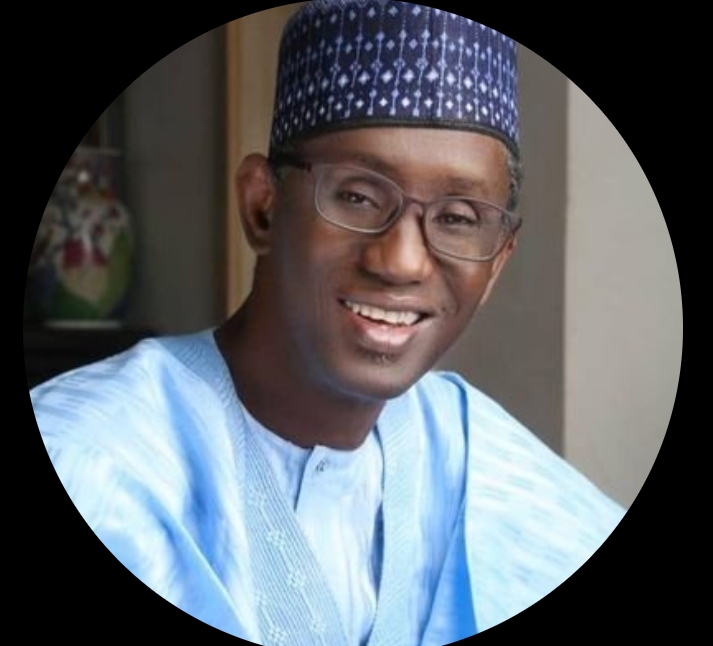
By Kayode Sanni-Arewa
The Federal Capital Territory (FCT) Police Command has initiated a search following the theft of a black Toyota Hilux vehicle belonging to the Office of the National Security Adviser (ONSA), Nuhu Ribadu, which was stolen during Friday’s Juma’at prayers in Abuja.
It was gathered that the vehicle was parked around 1:05pm opposite the Abuja Municipal Area Council (AMAC) complex in Area 10, while the official attended prayers at a nearby mosque.
Security source, Zagazola Makama, disclosed the incident via his X (formerly Twitter) handle, revealing that the ONSA official returned from the mosque only to find the vehicle missing.
According to him, a sources said the theft was immediately reported to the Garki Police Division at approximately 2:00 p.m., leading to a swift response by law enforcement.
Meanwhile, the FCT Police Command promptly activated a stop-and-search operation at various checkpoints and across all entry and exit points in the capital city.
Police authorities confirmed that investigations are ongoing and all efforts are being made to apprehend the culprits and recover the vehicle.
The Command said it had intensified efforts to track down the fleeing suspects and recover the stolen Hilux.
-
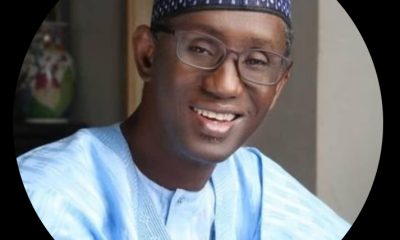
 News6 hours ago
News6 hours agoInsecurity: Criminals Cart Away NSA Ribadu’s Office Hilux During Juma’at Prayer In Abuja
-
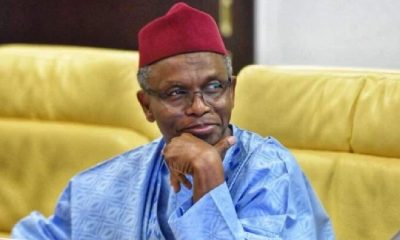
 News15 hours ago
News15 hours agoWe only had lunch with Buhari not 2027 politics -El-Rufai
-

 News15 hours ago
News15 hours agoSad! Explosion rocks Lagos
-

 News15 hours ago
News15 hours agoParts of Abuja, Niger in total darkness -AEDC confirms
-
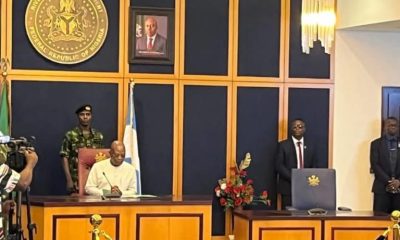
 News14 hours ago
News14 hours agoIbas gives reasons why Sole Administrators were appointed for Rivers councils
-

 News9 hours ago
News9 hours agoOERAF Rounds Up Late Chief Ekuogbe Rowland Akpodiete’s remembrance with Novelty Match
-

 News13 hours ago
News13 hours agoUS embassy announces new requirements for visa interviews for Nigerian applicants
-

 News13 hours ago
News13 hours agoFive countries with easy work visas in 2025






